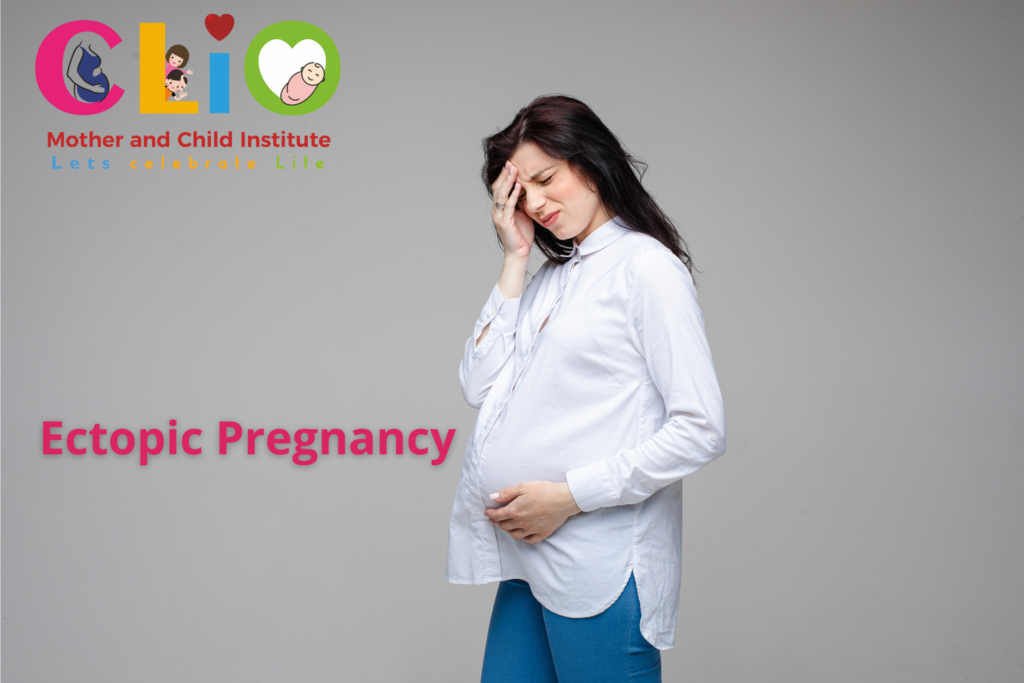An ectopic pregnancy happens when a fertilized egg implants and grows outside the primary cavity of the uterus. This often ensues in the fallopian tubes, which are responsible for carrying the egg from the ovaries to the uterus. In cases where the egg implants in the fallopian tubes, it’s referred to as a tubal pregnancy.
Despite the implantation, a fertilized egg typically cannot develop normally outside the uterus. Ectopic pregnancies can pose serious risks to health and life, making it essential to promptly remove the ectopic tissues. The chosen approach for removal depends on factors such as the stage of pregnancy and the exhibited signs and symptoms. Medical professionals, like gynecologists or obstetrician-gynecologists, might opt for medications, abdominal surgery, or methods like D&C (dilation and evacuation) or laparoscopy to terminate the ectopic pregnancy.
When facing the challenges of an ectopic pregnancy, finding a “gynaecologist near me” is crucial for receiving timely and expert care.
What are the causes of Ectopic Pregnancy?
An ectopic pregnancy arises when a fertilized egg is stuck in its way to the uterus, often due to a damaged fallopian tube caused by inflammation. The following factors elevate the risk of such a pregnancy:
- Previous instances of ectopic pregnancy
- Presence of inflammation or infection
- Undergoing fertility treatments
- Past fallopian tube surgical treatment
- Choice of contraceptive methods
- Smoking
- Utilization of ovulation-stimulating medication (as seen in certain fertility treatments like IVF)
- Conceiving after the age of 35
Complications:
An ectopic pregnancy can trigger the rupture of the fallopian tube, leading to critical and life-threatening bleeding.
What are the symptoms of an ectopic pregnancy?
The signs of an ectopic pregnancy can initially be similar to typical pregnancy symptoms. However, distinctive symptoms may emerge during an ectopic pregnancy, which includes:
- Vaginal bleeding.
- Pain in the lower abdomen, pelvis, and lower back.
- Feelings of dizziness or weakness.
In cases where the fallopian tube ruptures, the pain, and bleeding could become intense enough to lead to further symptoms, including:
- Fainting.
- Low blood pressure (hypotension).
- Shoulder pain.
- Sensations of rectal pressure or issues with bowel function
If a fallopian tube rupture occurs, sudden and intense lower abdominal pain is a situation requiring immediate medical attention. It is crucial to visit a nearby gynaecologist.
What is the Diagnosis for Ectopic Pregnancy?
Many people remain unaware of having an ectopic pregnancy until they attend their prenatal appointments, undergo blood tests, or receive ultrasounds at their Ob-Gyn clinic.
To confirm the occurrence of an ectopic pregnancy, gynecologists typically perform a sequence of tests aimed at initially confirming the pregnancy and subsequently confirming its ectopic nature. These diagnostic procedures encompass:
- Urine Test: Conducted within the doctor’s office, this test involves using a urine test strip or providing a urine sample in a cup. The presence of the hormone human chorionic gonadotropin (HCG) in the urine serves as confirmation of pregnancy.
- Blood Test: Similar to the urine test, a blood sample is drawn to examine the hCG hormone’s presence. A positive result indicates pregnancy.
- Ultrasound: A standard imaging procedure, ultrasound assists gynecologists in identifying whether the fertilized egg has been implanted within the uterine wall or elsewhere. If the egg is found to be implanted outside the uterus, the healthcare provider will determine the appropriate treatment course. Due to its urgency, ectopic pregnancy necessitates immediate medical treatment.
Treatment Options of an Ectopic Pregnancy
The treatment of an ectopic pregnancy is essential due to its inability to develop fully in an abnormal location, rendering its long-term survival improbable. Neglecting treatment may result in the rupture of surrounding tissues, leading to severe complications.
Ectopic pregnancy treatment options encompass both medical and surgical approaches:
Medical Management: This involves the administration of methotrexate injections to terminate the ongoing ectopic pregnancy. Sometimes, multiple injections are necessary to complete the procedure. The degenerated tissue gradually undergoes absorption. Importantly, this method does not impact the fallopian tubes.
Surgical Management: Laparoscopy is a preferred surgical option. In this procedure, a small incision is made near the belly button, through which small surgical instruments and a camera are utilized to completely remove the ectopic pregnancy. If the fallopian tube is identified as damaged, it can be removed during the same procedure. Laparoscopic treatment offers safety, cost-effectiveness, and quicker postoperative recovery.
Gynaecologist Near Me for treatment of ectopic pregnancy
Ending a pregnancy is a challenging decision regardless of the situation. The sensitivity of this matter often results in emotional distress for women, leaving them to grapple with the aftermath. It’s crucial for everyone to ensure that they are receiving proper support and guidance.
Choosing the right gynecologist for the treatment of ectopic pregnancy is a significant decision as it involves sensitive and complex considerations. The emotional impact of such a situation can be profound, making it essential to ensure that you receive care from experienced and compassionate professionals.
CLIO Mother and Child Institute stands as a renowned and trusted establishment for the treatment of ectopic pregnancy in Ludhiana. Our team of Obstetrics and Gynecology specialists boasts extensive expertise, with each doctor having over 10 years of professional experience. At CLIO Mother and Child Institute, our approach to managing ectopic pregnancies involves employing minimally invasive laparoscopic surgeries to minimize surgical complications. Our board-certified obstetricians and gynecologists are committed to delivering personalized care to every patient, catering to a range of pregnancy scenarios from normal to high-risk cases.
We acknowledge the sensitivity of the matter and assure utmost confidentiality throughout and beyond your surgical journey, respecting both your identity and health concerns.


